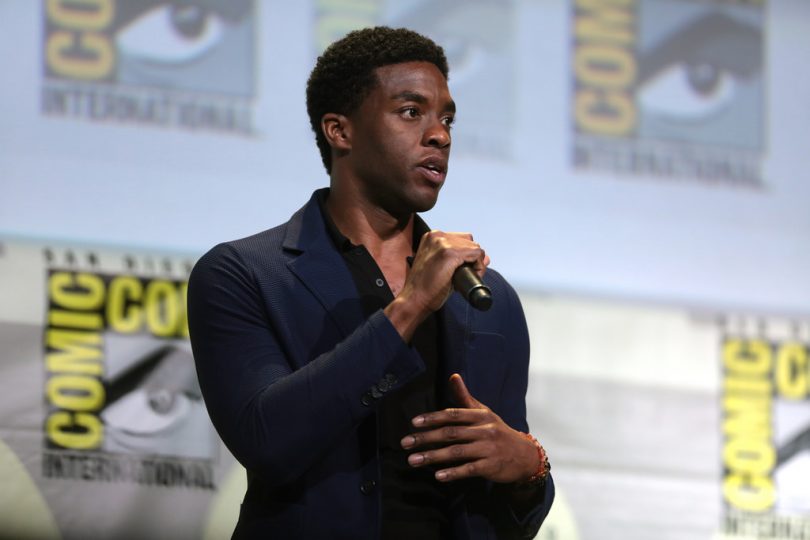By K. Sophie Will
BU News Service
“Black Panther,” a once-niche comic is now what’s next for the Marvel film giant. However, the new Avenger has become a phenomenon for being the first black superhero in the mainstream media.
The film, released Friday, comes during national Black History Month, and made $201.8 million in its opening weekend.
This is a fact that Ayomide Ojebuoboh, 19, Secretary of the African Students Organization at Boston University, thinks is “perfect timing.”
“Despite the different racial issues, the black community is making sure their voices are being heard, so this movie is a great addition to the current movement,” Ojebuoboh wrote in an email.
First featured in the “Fantastic Four” comics in 1966, “Black Panther” first got his own comic series in 1977. There has long been debate as to whether the comic has any connection to the Black Panther Movement that coincided with the time, though the original writers said they were neither “for nor against” the movement.
Jon Najarian, a Ph. D. candidate at BU for English and American History, is a teaching fellow who teaches a course entitled “The Graphic Novel.” He said that older comics, especially during the 70s, are characterized by both their niche audiences and social critiques.
“These niche circles allowed them to be more poignantly sharp, pointed and critical,” he said. “I think it would be interesting to see the kind of rise from more of an underground scene to a major scene attracting huge attention and seeing if comics can maintain their political edgy-ness as they move into the mainstream.”
As Marvel has taken “Black Panther” into the mainstream, there has been much excitement about the rise and inclusion of the superhero, though the industry has done it rather safely.
Charlotte Howell, an Assistant Professor of Media and Television Studies in BU’s College of Communication and a scholar on superheroes, discussed how Marvel and Disney had positioned the debut of the first black superhero in a “safe space” of the Avengers movies.
“It was seen as a somewhat of an answer to … that discourse of the kind of — especially black representation — representation of people of color in these big culture phenomenons and franchises,” she said. “I think reacting to the contemporary moment that position those elements of representation as part of this ongoing culture war discussion.”
“‘Black Panther’ is still a superhero, still a huge blockbuster and still a movie that is going to make a lot of money for Disney, which primarily can get characterized as a semi-political act, a way of displaying solidarity with one’s wallet,” she continued.
This “vote-with-your-feet” way of being a consumer is well received among the fans of the Marvel Universe and those excited about the diversity.
Ojebuoboh wrote that she was “more than pleased” that the main black character is not portrayed as a slave, murderer or the one assassinated as in many action movies.
“Displaying a black superhero can show society the beauty and power of black people,” she wrote.
Being that the “Black Panther” is a superhero is also key for representation, especially in American culture where there is importance placed on aspirational heroes, Howell explained.
“Marvel has been approaching it’s superheroes with the acknowledgement and the playing on that superheroes are aspirational in our heads and they are fictional world but they are characters that you can identify with when you’re younger in cartoons, comic books and toys,” she said.
Not only is the display of the Black Panther important, but the impact it has on the African American community and society as a whole is also vital.
“This movie is important to the African American community because it is empowering,” Ojebuoboh wrote. “I can tell that many people in the black community on campus are eager to watch this movie, because it is a move that celebrates black people and black history.”
“After many years of living in a society where our voices have been, at may times, ignored or look down upon, having a black superhero movie shows how far we have come in our society,” she wrote.
As for the movie, it not only features a black main actor, but is set in Africa with a largely black cast. The director, writer and soundtrack artists, like Kendrick Lamar, are also black.
“Some of the focus of ‘Black Panther’ movie package will focus greatly about the combination of Wakanda, characters and soundtrack,” Howell said. “I think that’s going to be a cultural touchstone, perhaps greater than any Marvel movie today.”
While “Black Panther” is taking big steps for representation in Hollywood, there is still a ways to go.
“I do hope that the increased black representation in Hollywood will show people that black people are smart, talented and strong people who are succeeding and will continue to succeed in society,” Ojebuoboh wrote.





